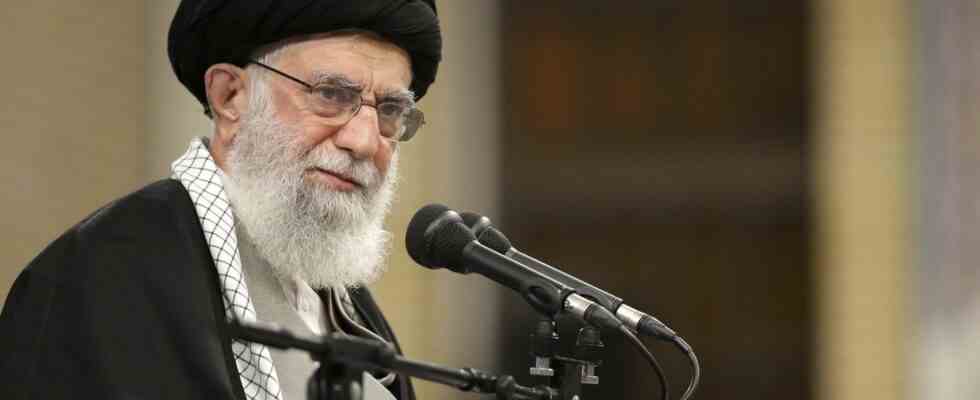Status: 03/06/2023 10:42 p.m
Iran’s leader Khamenei has condemned the poisoning of schoolgirls. The backers should be punished “with the death penalty”. The United States called for an independent investigation into the previously unsolved cases.
After a series of poisonings at girls’ schools, Iran’s religious leader Ayatollah Ali Khamenei has called for harsh punishment for those responsible. “If the poisoning of the schoolgirls is proven, the perpetrators of this crime should be punished with the death penalty and there will be no amnesty for them,” Iran’s spiritual leader said, according to the state news agency IRNA. “The authorities must seriously investigate the case of the poisoned school children,” Khamenei continued.
It is the first public statement by Khamenei, who has the final say in all strategic matters in Iran, on the nationwide wave of poisoning. He called it an “unforgivable crime”. The relevant authorities, intelligence services and law enforcement agencies should pursue and uncover the causes of this crime, he urged.
More than 2400 cases of poisoning
The first cases of the mysterious poisoning became known as early as November, affecting almost exclusively girls’ schools. Schoolgirls were being treated in hospitals across the country. Doctors speak of gas poisoning. Iran’s government says it is assuming targeted attacks. However, there is no official explanation yet. Parents and relatives are angry with the authorities, accusing them of failure and blaming them. Opponents of the regime also believe it is possible that the perpetrators come from circles close to the state or the Revolutionary Guards and want to intimidate young, educated women.
Some politicians have suggested the girls may have been targeted by religious groups opposed to girls’ education. Iranian President Ebrahim Raisi recently blamed “foreign enemies” for the attacks. Raisi left open who he meant by that. However, the USA and Israel are regularly referred to as enemies of the Islamic Republic.
Iranian media have reported more than 2,400 cases of poisoning in schools. This was the result of an evaluation of reports that appeared in the Iranian media from November to early March. There are currently no official figures from the authorities on the overall extent of the wave of poisoning. According to Iranian media reports, more than 100 schools across the country are affected. Observers also assume that there are unreported cases.
Newspaper journalist Ali Purtabatabai was also arrested after reporting on the mysterious wave of poisoning. This was reported by the newspaper “Entekhab”, citing his sister. The journalist worked in the religious stronghold of Qom, where the first cases of poisoning were reported months ago. Criticism of his arrest came promptly. This does not contribute to the “demystification of the rumors and news,” wrote reform politician and journalist Abbas Abdi on Twitter. It makes the rumors “even worse. I hope he will be released soon.”
White House calls for independent investigation
The White House in Washington called for a “credible and independent investigation”. Those responsible must be held accountable, spokeswoman Karine Jean-Pierre said. The poisoning of school girls in Iran is “unheard of”. “Women and girls everywhere have a fundamental right to education,” she said.
The mullahs’ regime has been under enormous pressure since the mass protests broke out. The violent death of 22-year-old Mahsa Amini in September led to demonstrations critical of the regime across the country, which were brutally suppressed by the Revolutionary Guards, who were loyal to the government. According to Amnesty International, dozens of people were killed during the protests. Many schoolgirls were among the demonstrators.

